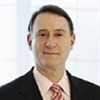Quadruple Negative No Quantum Leap for Literary Lawyers
Robert Angyal, SC, Barrister, Mediator and Arbitrator, ponders the wordy wonders of legalese – something lawyers would never be accused of being lackadaisical about.
 |
2018 has seen a Legal Language Breakthrough: The Quadruple Negative (as used against Luna Park by a certifier addressing whether construction of a new ride required development consent):
“The works cannot be demonstrated as not inconsistent with the development consents as it was unclear whether the development consents authorise the installation of new rides.”
Wow! That’s … nearly incomprehensible.
We lawyers used to think that double negatives were not uncommon, especially in legal prose. And it was not unusual for layers not to stop there, but to wheel out the big gun of the triple negative. Whammo! Take that, whether you understand it or not.
But – it cannot be denied – this lawyer couldn’t believe that lawyers wouldn’t stop there and, indeed, here it is: the N-Bomb of legal language: The Quadruple Negative, courtesy of a certifier whose judgment about Luna Park was recently upheld by the Land and Environment Court. The members of that Court, at least, must have believed that they understood what the certifier said.
It’s not unlikely that this arms race won’t be adequately controlled by mechanisms not unlike those used to limit the production of thermonuclear weapons. Accordingly, you should be alert to the deployment of a new and terrifying weapon of mass incomprehension: The Quintuple Negative. If you have trouble with the Terrible Twins “hereinbefore” and “hereinafter” and struggle with “Whereas in the premises“, you won’t stand a chance against the Quinty. (Like me, you probably ask yourself why Whereas is always in the premises. Doesn’t it have anywhere to go home to?)
Why is it not uncommon for lawyers to use these strange phrases? Think about “not uncommon” for a moment, a phrase beloved by lawyers. Presumably, the writer didn’t want to say “It is common for lawyers …“. That perhaps sounds a bit too strong. So the writer opted for “It is not uncommon for lawyers …“, which seems to give him or her a bit of weasel room, or deniability as they say in politics.
But solving this problem creates another, more fundamental one: What does “It is not uncommon for lawyers …” actually mean? First, what does “uncommon” mean? Does it mean “not common“? If it does, the phrase “It is not uncommon for lawyers … ” means “It is not not common for lawyers …“. That doesn’t seem to make much sense. And, if “uncommon” doesn’t mean “not common“, what does it mean?
Perhaps we’d be better off if lawyers simply abolished double, triple, quadruple and quintuple negatives. Years ago, Tom Hughes QC was cross-examining a client of mine through a Cantonese interpreter. Mr Hughes hurled one of a series of long and complicated questions at the elderly and dignified interpreter, who paused, looked at him and then turned to the Judge and said, “Your Honour, I cannot interpret that question.” The judge, perplexed, asked, “Why not, Mr Interpreter?” and the answer was, “Your Honour, in Cantonese, there are no double negatives.”
The judge turned to Mr Hughes and said, “Sometimes, I wish there weren’t any in English either. Ask a simple question, please.” The judge’s words continue to ring in my ears and I strive to ask simple questions that a witness can understand.
Robert Angyal, SC, served Articles of Clerkship in 1972-1974 at Dawson Waldron (now Ashurst) under Donald Magarey. After graduating from the University of Sydney Law School in 1994 with first-class honours, Robert taught at the University of NSW Law School until he was awarded a scholarship to study for a Master of Laws at Yale Law School. Following award of the LLM in 1975, Robert worked for the law firm Arnold & Porter in Washington DC, gaining experience in administrative and aviation law. Three years in Panama followed, where he taught US law at Florida State University and worked as a lawyer for the Panama Canal Company and the Canal Zone Government.
Robert was admitted to the District of Columbia Bar in 1979 and returned to Arnold & Porter. He moved to the Federal Energy Regulatory Authority’s Enforcement Division in 1980, where he gained extensive experience in the regulation of natural gas, electricity and hydro. Robert drafted the legal justification for the FERC’s first experimental order deregulating wholesale electricity pricing, Southwest Bulk Power Experiment, Opinion 203, 25 F.E.R.C. 1161,469 (1983), the precursor to deregulation of wholesale electricity prices in the US.
Robert returned to Australia in 1985 and joined the litigation department of Allen Allen & Hemsley (now Allens + Linklaters). He became a Senior Associate in 1987, gaining broad experience in commercial litigation. He also worked on major natural gas arbitrations involving Cooper Basin gas. Robert went to the NSW Bar in 1989 where he built a commercial, equity and mediation practice. He helped establish the first Settlement Week in NSW in 1991 and mediated in Settlement Weeks in 1991, 1992 and 1993-1994. He took Silk in 2004.
Robert runs Commercial Mediation Sydney. Contact Robert at robert.angyal@stjames.net.au and find him on Twitter